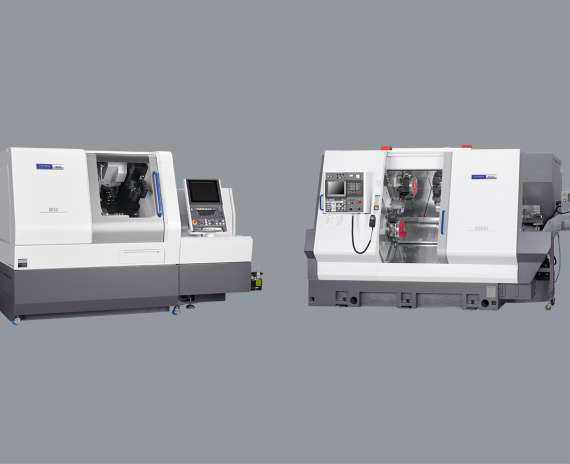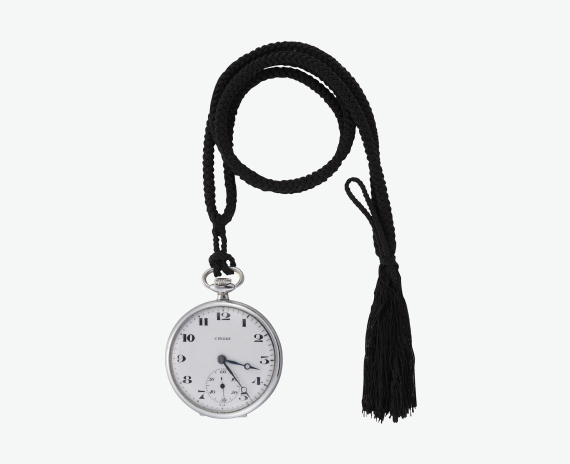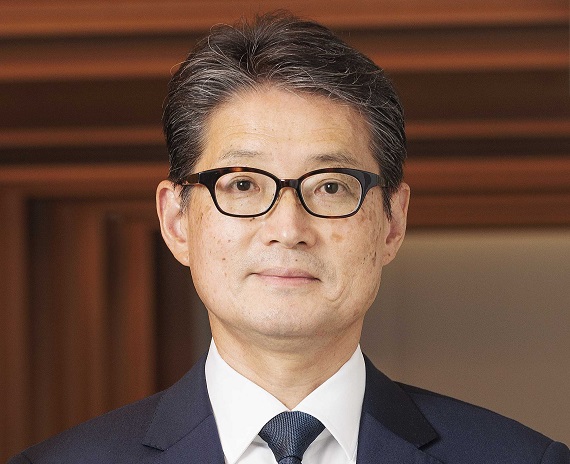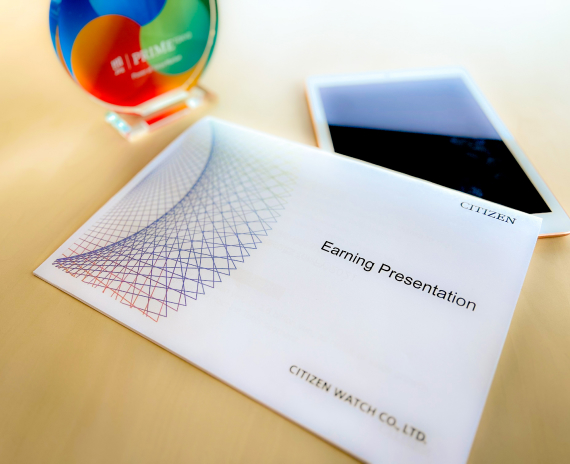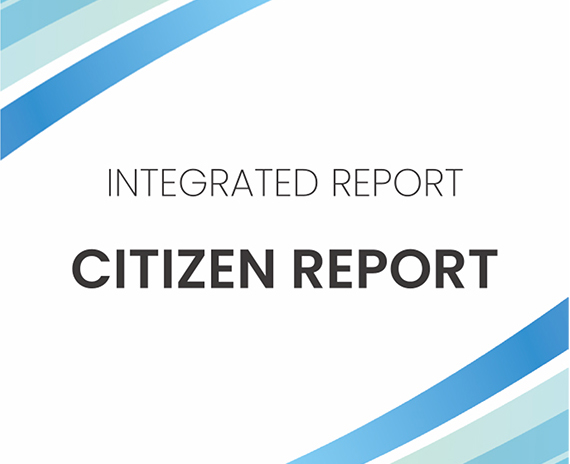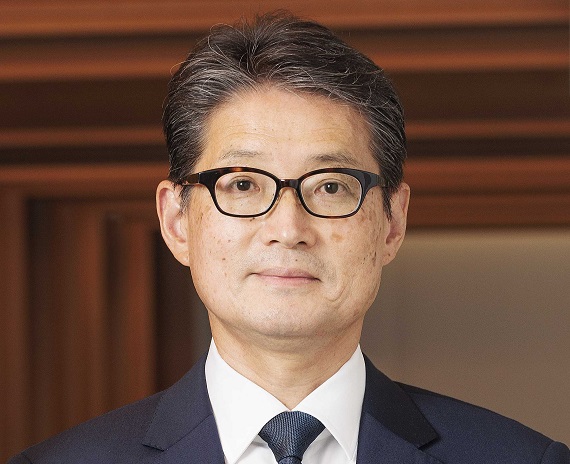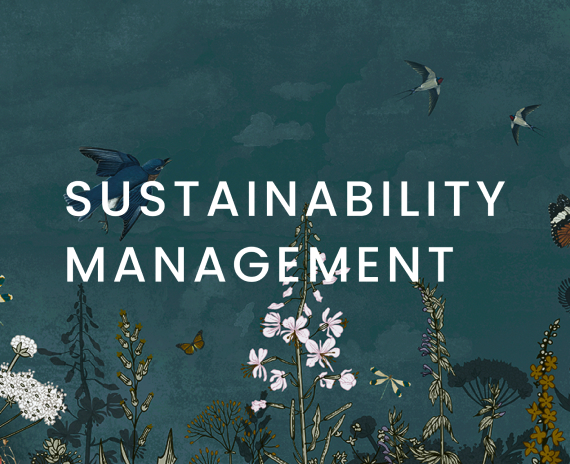- TOP
- Sustainability
- Sustainability Management: Concept of Sustainable Management&Promotion Structure
Concept of Sustainable Management&Promotion Structure
The CITIZEN Group's Sustainable Management
The CITIZEN Group has been operating for over 100 years based on its corporate philosophy of "Loved by citizens, working for citizens." Starting in FY2019, our 101st year in business, we have been promoting "sustainable management" to solve social issues through our business. Sustainable management means not only providing good products and services but also expanding our business while earning the trust of our stakeholders and continuously improving our corporate value through management that takes into consideration social issues such as human rights and the global environment throughout the value chain.
In light of the medium- and long-term changes in the environment, the CITIZEN Group will leverage the Group's strengths and capital to address material issues in both its business activities and business infrastructure. By creating social, environmental, and economic value that contributes to solving social issues, we aim to be loved by and work for citizens, as well as contribute to the achievement of the Sustainable Development Goals (SDGs).
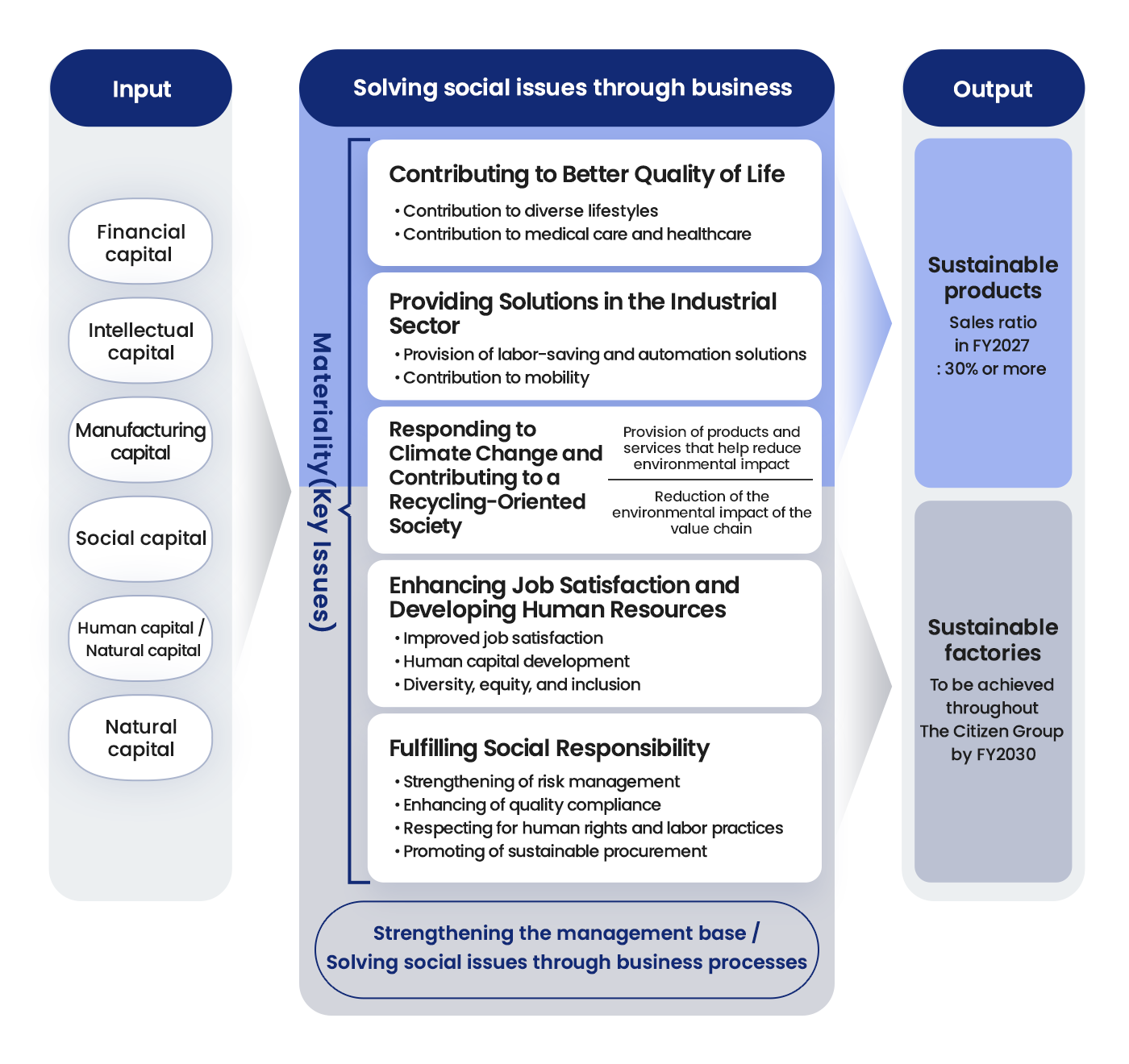
Sustainability Promotion Structure
Sustainability Committee
In April 2020, The CITIZEN Group established the Sustainability Committee, which is chaired by the president and representative director of CITIZEN WATCH and includes full-time directors of CITIZEN WATCH and the presidents of business management companies as members. The Committee meets once a quarter mainly to discuss materiality, check the progress of activities, and hold study sessions with external lecturers. The Corporate Planning Department and Sustainability Promotion Department of CITIZEN WATCH, which serve as the Committee secretariat, also operate the Sustainability Secretariat Meeting in collaboration with the corresponding departments and materiality-related committee secretariats of the respective Group companies. Through this process, the Committee regularly verifies the sustainability issues and progress of activities at each company. The activities of the Sustainability Committee are reported semi-annually to the Board of Directors.
- Objectives and Functions
-
- Identifying and periodically reviewing materiality
- Promoting efforts in existing businesses to improve their sustainability and contribute to resolving social issues
- Formulating policies for addressing ESG issues and monitoring activities based on those policies
- Meetings
- Quarterly (every three months)
Sustainability Promotion Structure
As the subcommittees of the Sustainability Committee, we have established the Group Quality Compliance Committee, the Group HR Committee, the Group Environmental Committee, and the Group Sustainable Procurement Committee.
In addition, the Sustainability Committee Secretariat and the Secretariat Meeting, which comprises members from the Corporate Planning Departments and the Sustainability Promotion Departments of the respective Group companies, ensure that the content of the deliberations by the Sustainability Committee is shared with the sustainability promotion organization in each business.
We also established CITIZEN-SIRT, the Group Information Governance Committee, the Group Legal Compliance Committee, and the Group Business Continuity Management Committee to address matters related to the handling of management-related risks and the enhancement of the Group's management base. These committees addressing risks related to the management base have been established under the Management Committee, which meets monthly, to create a structure that enables the swift detection of and deliberation on problems as well as prompt responses to them.
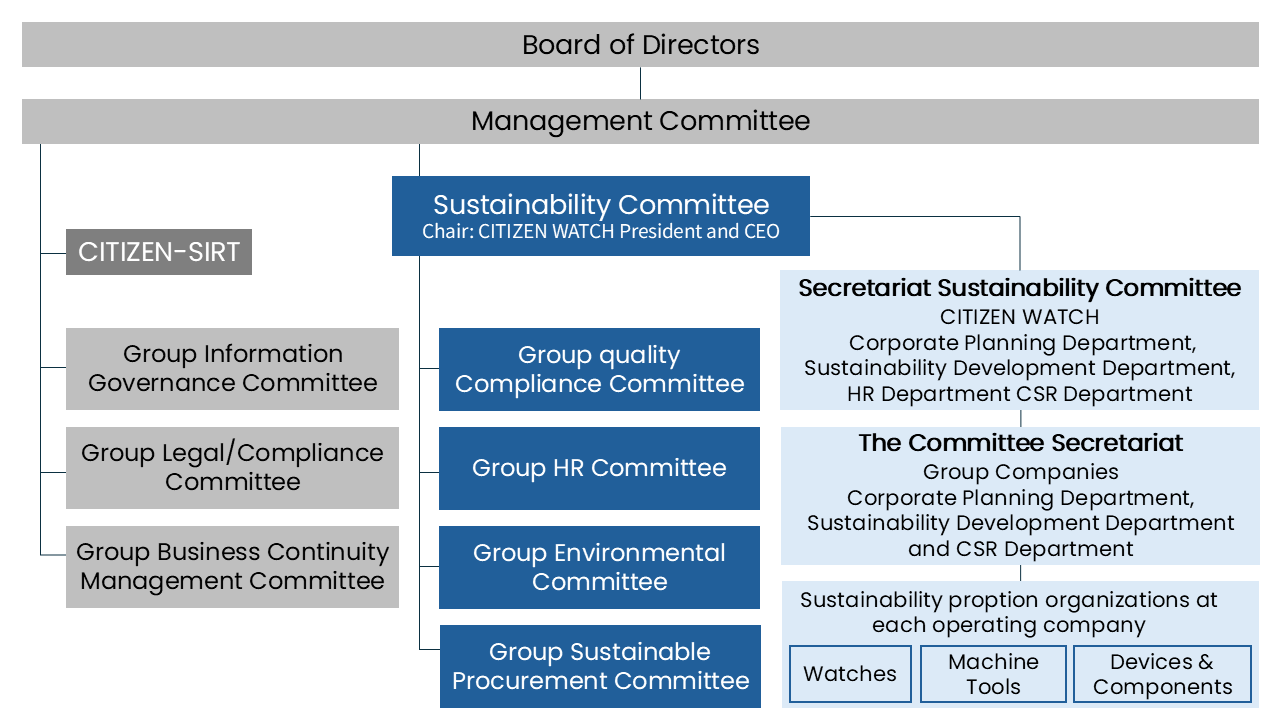
Raising Awareness of Sustainable Management among Employees
To implement sustainable management throughout The CITIZEN Group, the Group promotes initiatives, with the Sustainability Committee playing a central role, to raise all employees' understanding and awareness of the connection its business activities have with its material issues and the SDGs. Specific initiatives include study sessions and e-learning programs as well as activities including messages from the president and the use of in-house newsletters, which have been ongoing since FY2019 to ensure that sustainability awareness permeates all employees.
Lecture Meetings
The CITIZEN Group holds lecture sessions targeting key personnel responsible for driving materiality initiatives, with the aim of ensuring their accurate grasp of societal trends. In FY2024, a lecture on response to climate change was held in August for executives and sustainability personnel in the Group. We also provided all employees of our Group companies with an e-learning program on chemical substance management. Every June, our company newsletter carries an Environment Month feature story. The FY2024 feature story focused on chemical substance management to complement the e-learning program, thereby ensuring the thorough spread of knowledge. In addition, the Sustainable Procurement Committee held a study session on responsible minerals procurement with a guest lecturer.


